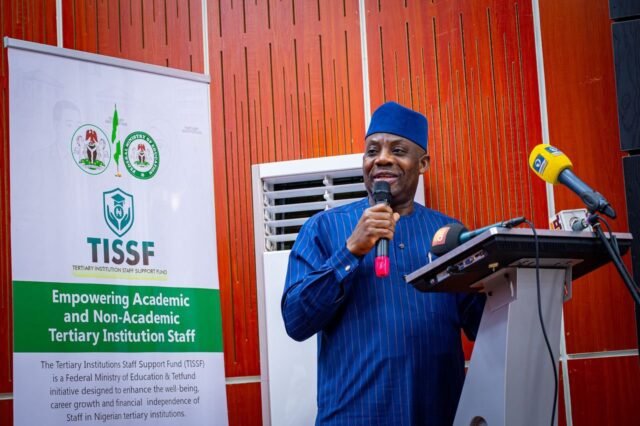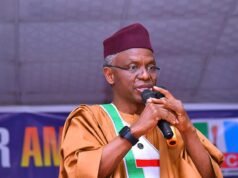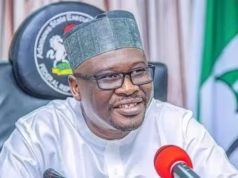Nigeria has taken a decisive step towards reshaping its education system as the Federal Ministry of Education announced a major reform of the technical and vocational education curriculum. The move, according to Education Minister Dr. Maruf Tunji Alausa and Minister of State for Education, Professor Suwaiba Sa’id Ahmad, is designed to prepare young Nigerians with the skills needed to thrive in today’s fast-changing world of work while also strengthening the country’s human capital base.
The reform, which will take effect from the 2025/2026 academic session, seeks to streamline technical education by making the curriculum more practical, relevant, and responsive to labour market needs. The Ministry explained that the new structure is not just about teaching technical skills, but about blending those skills with a strong academic and civic foundation that can empower students to succeed locally and globally.
For decades, Nigeria’s technical education has suffered from overloaded curricula, outdated trade offerings, and a lack of alignment with the realities of modern industry. Employers have often lamented that graduates leave technical schools without the practical expertise required in the workplace. This new reform seeks to close that gap.

Table of Contents
A New Structure for a New Era
One of the most striking aspects of the reform is the reorganisation of subjects. Each Federal Science and Technical College (FSTC) will now offer six to ten trade areas, while students will take nine to ten subjects in total. This will include:
- One core trade subject tailored to a student’s chosen specialisation.
- Five or six academic core subjects such as Mathematics, English, Physics, Chemistry, Biology, and Citizenship & Heritage Studies.
- Two or three trade-related courses to complement the main specialisation.
- One elective, allowing flexibility and broader exposure.
In addition, 26 trade areas have been updated and modernised to reflect industries that are shaping Nigeria’s future. These range from solar photovoltaic installation, computer hardware and GSM repair, livestock farming, leather works, creative media and content management, beauty therapy and cosmetology, to fashion design and garment making.
By emphasising trades such as renewable energy installation, ICT repair, and creative media, the government is signalling its recognition that Nigeria’s future workforce must be adaptable, digitally savvy, and entrepreneurial. At the same time, long-standing trades such as garment making and agriculture are being retained, showing a balance between modernity and tradition.
Building Skills with Citizenship and Identity
Beyond technical skills, the reform introduces Citizenship and Heritage Studies—a curriculum component that merges civic education, Nigerian history, and social studies. This reflects the government’s commitment to building graduates who are not only employable but also socially responsible and culturally rooted.
Minister Alausa stressed that education is not simply about producing workers for the economy but about moulding well-rounded citizens. According to him, Nigeria cannot afford to raise a generation that is highly skilled but detached from their national values and civic duties.
This dual focus—technical competence and national identity—is also in line with President Bola Ahmed Tinubu’s Renewed Hope Agenda, which envisions Nigeria becoming a trillion-dollar economy by 2030. As the Ministry explained, technical education must now play a central role in achieving that vision by producing skilled graduates who can innovate, build businesses, and compete in the global economy.

Transition, Support, and the Road Ahead
Understandably, the announcement has raised questions among parents, teachers, and students about how the reforms will be implemented. The Ministry of Education has sought to reassure stakeholders, promising that the transition will be carefully managed and supported. Institutions will be given the necessary resources to adopt the new curriculum, while teachers will receive training to adapt to the new content and delivery methods.
The reforms will not disrupt current learning paths but will gradually phase in, starting with new intakes from the 2025/2026 academic session. By giving schools, parents, and communities early notice, the Ministry aims to avoid confusion and resistance.
Education experts note that the success of the reform will depend heavily on implementation. For example, teaching solar installation or digital media skills requires modern equipment and well-trained instructors, something many technical colleges currently lack. To bridge this gap, the government has hinted at partnerships with industry players who can provide expertise, tools, and apprenticeship opportunities.
Despite the challenges, the reforms are widely regarded as a bold and necessary step. In a country where unemployment and underemployment among young people remain stubbornly high, technical and vocational education offers a pathway to self-reliance and job creation. If executed well, the new curriculum could help unlock Nigeria’s demographic dividend by equipping its large youth population with the skills to transform the economy.

Conclusion
The Nigeria technical education curriculum reform marks a turning point in how the country views vocational and technical learning. Rather than seeing it as a “second choice” for those who do not enter universities, the government is repositioning it as a key driver of economic growth and national development.
By streamlining subjects, modernising trade areas, introducing civic and heritage studies, and promising a smoother transition for all stakeholders, the Ministry of Education has set the stage for a more relevant, practical, and inclusive technical education system.
For students, it means clearer pathways to employment and entrepreneurship. For parents, it offers reassurance that their children will not only gain knowledge but also real-world skills. And for Nigeria as a whole, it presents a chance to build a workforce that is future-ready, globally competitive, and deeply rooted in national values.
If the reforms are backed with adequate investment, training, and monitoring, they could well become one of the most transformative steps in Nigeria’s educational journey.
Join Our Social Media Channels:
WhatsApp: NaijaEyes
Facebook: NaijaEyes
Twitter: NaijaEyes
Instagram: NaijaEyes
TikTok: NaijaEyes
READ THE LATEST EDUCATION NEWS





